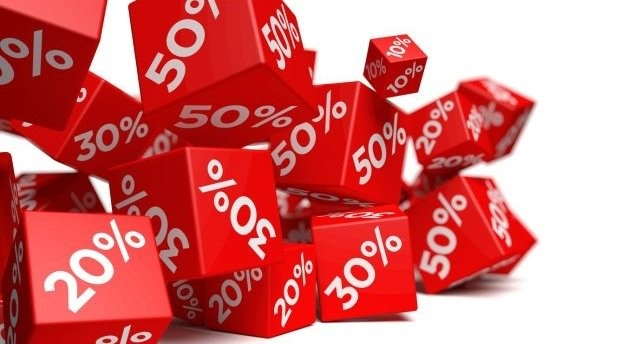An elderly person I know sells honey that he picks from village groups. He buys pre-bottled honey for Rs.260 (just under $4) and the bottle has a retail price of Rs.310 (about $5) which he sells in his shop in the city. He is really not trying to make money off it as he spends considerably more in getting a batch of bottles to his shop and keeping them on display, than the small margin he makes.

Last week, a young customer was mighty reluctant to pay the listed price of 310 and was demanding a discount. He argued to get at least a Rs10 discount and finally paid with poor grace. I was just a bystander, but this got me thinking. Every hour of the day and every day of the week, nearly everything I buy seems to come with offers. Breakfast (15% off on home delivery), cab to work (20% when paid with a mobile wallet), lunch (50% off for second person), and so on covering everything from cosmetics to computers, mobile phones to movies, flights to pharmacies, and hotels to houses. Quite literally, the only thing for which you don’t get some discount, offer, or cashback is for payments to the government. Consumers are used to this, and in fact find it laughable that anyone will pay the full price for anything!

Offers and discounts have transitioned from promotional schemes to a way of life. Freebies are de rigueur to succeed, and increasingly even to survive. On the face of it, this seems to be fostering a wave of companies who are innovating and finding ways to drive down prices. All the buzzwords that matter – dis-intermediating, cutting-out-the-middleman, economies-of-scale, and the dreaded app-based service – have been applied to achieve this end of low prices. I believe that this current trend is also inhibiting innovation. There are far more companies who have drowned while throwing around money than those who have genuinely found ways to deliver value. Due to these, only those products and services which are backed by deep venture-funded pockets can afford to get into most domains today. Everything else, which aims to provide a useful service or product for a reasonable fee, finds no favor with the pampered consumer.
There was a time in the early 2000s when some people would speculate if telecom services (voice, data, etc) could be made completely free by using ad-funded models. However unlikely the proposition was, it had some serious backers as well. Fortunately, sanity prevailed and we rarely hear such talk nowadays. Though such buzz, instead of dying down, has merely moved onto other areas, including the payments domain where Nearex operates.
This sounds particularly strange today, when the flag bearers of such deep discounted services – news, content, discounted movie tickets or cheap flights – have all moved on to more reasonable business models. News and content is increasingly behind paywalls today and the convenience fees that aggregators charge almost always make a movie ticket more expensive online than at the theater or a flight ticket and stay cheaper at the airline and hotel chain directly.
Intuitively getting X conveniently should cost more than merely getting X. It is a lesson that the startups of the last decade seem to have learned. Will the new crop of startups learn from them or tread the same painful path all over again? For the sake of all the startups out there, I hope it is the former.
As to the person selling honey? He declares that there is no better honey in the local market and those who value his product will pay his price.
And that, perhaps, shows the best way forward.
